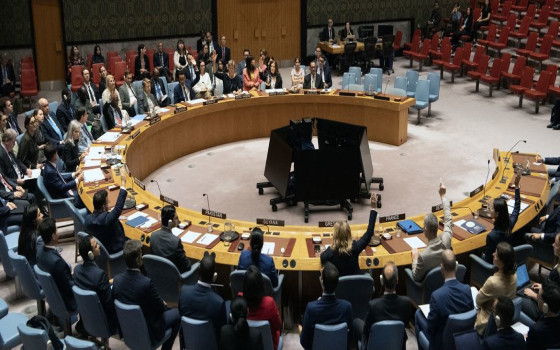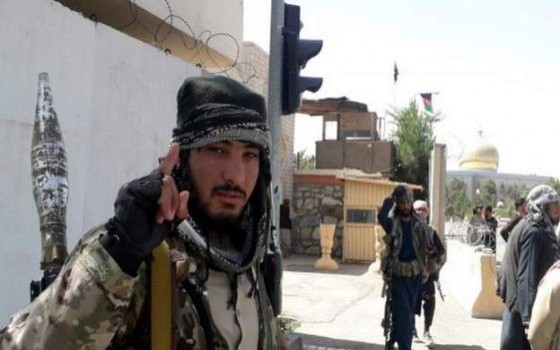
National Council of Resistance of Iran: Implementation of the Snapback Mechanism Begins a New Era of International Sanctions Against Tehran, with Intertwined Prospects

- Europe and Arabs
- Monday , 29 September 2025 8:16 AM GMT
Paris - Tehran: Europe and the Arabs
In a move with profound strategic implications, the international sanctions prior to the JCPOA came into effect at dawn on Sunday, September 28, 2025, with the activation of the snapback mechanism stipulated in UN Security Council Resolution 2231. These sanctions, based on Resolutions 1696, 1737, 1747, 1803, and 1929, include a comprehensive arms embargo, strict restrictions on missile and nuclear programs, and strict banking restrictions, including a freeze on foreign assets. They are binding on all 193 UN member states. This activation, which came after months of failed negotiations between Tehran and Western powers, signals a major shift in international policy toward Iran. It represents a return to the harsh sanctions regime that preceded the 2015 nuclear agreement, but within a context more complex due to current geopolitical changes. Khamenei's position in the face of the new era, according to a statement distributed by the National Council of Resistance of Iran (NCRI), a copy of which we received, which also stated: "Ali Khamenei, the Supreme Leader of the Iranian regime, enters this new era at its weakest, both strategically and domestically. In recent years, Iran has suffered severe blows that have affected its nuclear program. International reports have revealed sanctions that have weakened its technical capabilities, in addition to an economic collapse exacerbated by previous sanctions and internal corruption. The social situation has not been better, as the country has witnessed successive waves of protests since 2017, 2019, and 2022, reflecting the peak of popular discontent against the regime. Under these circumstances, Khamenei relies primarily on the internal repression apparatus, represented by the Revolutionary Guards and security forces, to contain any potential rebellion. However, it appears that this reliance may not be enough, as he faces increasing challenges from an organized resistance that has begun to expand internally.
Khamenei is also betting on circumventing sanctions by strengthening his alliances with Russia and China, hoping for continued economic and military support from Moscow and Beijing to alleviate Western pressure. He also believes that completing the process of building... A nuclear bomb, despite the obstacles, along with the reorganization of his regional proxies (such as the Houthis in Yemen and Hezbollah in Lebanon), will strengthen his negotiating position. His goal is to obtain concessions from the West, such as easing sanctions, or from neighboring countries to avoid military escalation. However, this bet may prove illusory, as the dynamics have changed since 2015: the regime is significantly weakened by international isolation, and its malignant nature has become clear to the world following human rights scandals and aggressive regional behavior. Proxies have lost their effectiveness due to increasing pressure, while the level of social unrest has increased with repeated popular uprisings and the emergence of an organized resistance that is expanding daily.
Prospects for Internal Contradictions
Internally, rifts between factions within the regime are expected to widen, especially between the reformist gang and the hardliners. Khamenei will be forced to tighten his grip further, using the judiciary and threats to rein in the reformists, and he has already begun targeting their leaders on political charges. This move reflects his attempt to assert control, but it also increases tensions, as interests clash between the two sides under the new sanctions. The reformist gang, which calls for... For negotiations, he believes that confrontation will destroy the regime, while the conservatives, led by Khamenei, insist on adhering to the current policy. This contradiction makes compromise impossible, paving the way for an internal conflict that could weaken the regime's political cohesion in the near term.
Economic Outlook
Economically, the outlook will be bleak due to binding international sanctions. The rial's depreciation will intensify, with expectations that the dollar will rise to unprecedented levels, increasing by more than 115,000 tomans. The stock market will experience a sharp decline, while the regime will face a complete ban on access to the global banking system (SWIFT), disrupting international trade. To counter this pressure, the regime may resort to printing money in large quantities, but this will exacerbate inflation, which could reach dangerous levels that threaten market stability. The pressure on the population will increase to unprecedented levels, with prices of basic goods rising beyond the point of popular tolerance. This situation could push society to the brink of all-out revolution, as the people are ready to take to the streets after years of oppression and deprivation.
Politically, Khamenei will continue to focus forcefully on the nuclear program and the reorganization of proxies, considering them the two main elements. The only ones capable of saving his regime. He believes that a return to the status quo before the 2015 nuclear deal is possible, but reality proves otherwise: the regime is significantly weaker, the world is now seeing its true colors, the people have undergone multiple revolutions, and organized resistance has become a real threat. These changes render his strategy futile, but he is determined to pursue it.
Prospects for Revolution
The prospects for revolution are clear: all roads lead to it. Khamenei has focused all his efforts on preventing it, adding full readiness to his forces, but the people have come to the conviction that overthrow is the only path to salvation. These days represent a historic opportunity for the people and the resistance, as internal and external pressures can be exploited to carry out a successful revolution, which could finally end the regime's reign.
This came after the UN Daily Bulletin reported that all relevant provisions of the Security Council resolutions* concerning Iran have been re-implemented in the same manner as they were in place prior to the adoption of Resolution 2231, issued in 2015.
Under this, the sanctions list administered by the Security Council has been reactivated. The list currently includes 43 individuals and 78 entities that were listed prior to the adoption of Resolution 2231.
This 2015 resolution—which affirmed its support for the Joint Comprehensive Plan of Action (JCPOA) on Iran's nuclear program and urged its full implementation according to the established timetable—decided to terminate the provisions of previous Council resolutions. On Friday, September 26, Russia and China introduced a draft resolution to extend the Joint Comprehensive Plan of Action (JCPOA) and Security Council Resolution 2231. Only four members voted in favor of the draft resolution, nine voted against it, and two abstained. Consequently, it was not adopted due to a lack of votes. According to the UN Daily News, the adoption of the draft resolution would have delayed the reimposition of sanctions related to Iran for six months, until April 18, 2026. Failure to adopt it would mean the reimposition of sanctions that had previously been lifted.
This comes a month after three European countries—France, Germany, and the United Kingdom—notified the Security Council of what they described as Iranian violations, triggering the reimposition of the sanctions mechanism.












No Comments Found